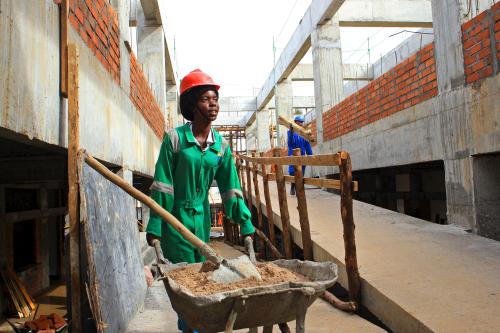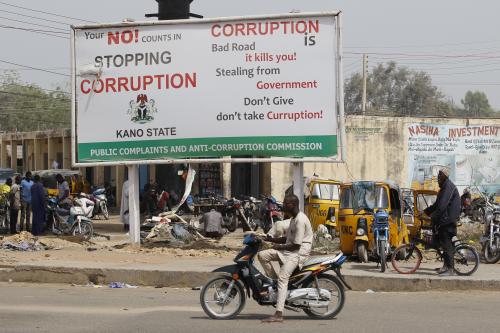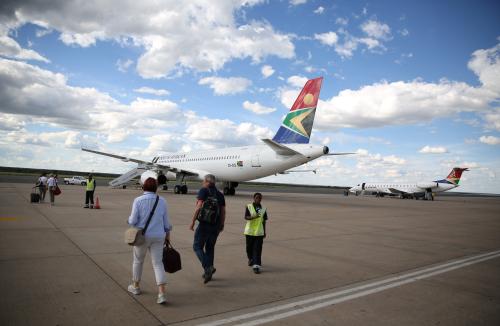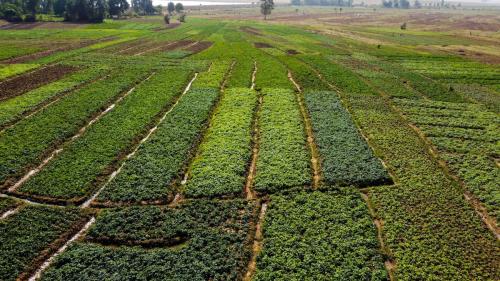JP Morgan Chase plans Africa expansion as Nigeria sues the bank for $875 million
On Wednesday, JPMorgan Chase CEO Jamie Dimon gave an interview to Bloomberg TV at the World Economic Forum (WEF) where he stated that the bank is presently planning to expand its presence on the African continent. In the expansion, the bank will not only serve those countries but will also “serve the U.S multinationals going in, the sovereign wealth funds, the universities, [and] the power plants.” Specifically, JP Morgan Chase will focus its future operations on Ghana and Kenya, where the bank’s previous expansion efforts were curtailed by local regulators.
JP Morgan Chase presently has branches in South Africa and Nigeria. The latter is suing the bank for $875 million, accusing it of negligence in transferring funds from a disputed 2011 oil deal to a company controlled by Nigeria’s former Oil Minister Dan Etete. In 2011, Royal Dutch Shell and Eni made a $1.3-billion payment to secure an offshore oil field. The sum was deposited into a Nigerian government escrow account managed by JP Morgan. Under a request from finance ministry employees, the funds were transferred to Malabu Oil and Gas, a company controlled by Etete. The Nigerian government accuses JP Morgan of failing to ensure that the funds did not leave the Nigerian government’s bank accounts. A spokesperson for JP Morgan denied the claims, stating that the bank “considers the allegations made in the claim to be unsubstantiated and without merit.” In December, an Italian judge ruled that Eni—headquartered in Milan—and Shell are to stand trial over corruption charges as they allegedly paid bribes to Etete and others in order to secure the deal. The trial date is set for March 3.
African leaders attend the World Economic Forum in Davos
This week, the World Economic Forum Annual Meeting is taking place in Davos under the theme “Creating a Shared Future in a Fractured World.” For the first time since WEF’s inception, Somalia sent a delegation to the forum, where Prime Minister Hassan Ali Khayre met with International Monetary Fund Managing Director Christine Lagarde and discussed the IMF’s technical assistance to the East African country. The meeting also reiterated the importance of Somalia’s debt relief as an IMF priority.
Lagarde also met with South Africa’s Deputy President Cyril Ramaphosa. One of the main points of discussion related to the existing structural challenges that continue to plague South Africa as well as the importance of creating timely reforms to create an environment conducive to job creation. In an interview to Bloomberg TV, Ramaphosa reassured the public of the economic state of the country and stated that South African authorities are scaling up efforts against pervasive corruption. Zimbabwean President Emmerson Mnangagwa similarly remarked on controlling corruption this week, stating that his country is now “open for business,” and that he will ensure that the upcoming presidential elections are free, fair, and transparent.
In related news, on the first day of the forum, Rwanda highlighted its recent advancements in drone technology, as the country is the first to adopt performance-based drone regulations. Rwanda is the first country to collaborate with WEF in order to co-design a policy framework to improve the country’s competitiveness in the Fourth Industrial Revolution. Relatedly, President Paul Kagame held a sideline meeting with Israeli Prime Minister Benjamin Netanyahu where they discussed the status of African migrants facing deportation in Israel and agreed that migrants should solely be deported in accord with international laws. On Friday morning, Kagame also met with U.S. President Donald Trump to discuss the topics of peace and security, counterterrorism, U.S.-Africa trade, and African Union reform.
Oil-explorer Total to buy stake in Kenyan oil blocks and build pipeline
On Tuesday, January 23, the Kenyan government and Total S.A. reached an agreement on the construction of the Lokichar-Lamu oil pipeline. As part of the agreement, the Kenyan government will allow Total to acquire a stake in three oil blocks from A.P. Moeller Maersk, an oil exploration company. According to Reuters, production should begin in 2021, once construction of the pipeline is completed. The pipeline will connect the oil blocks to the port of Lamu, which will be used to export the crude. Speaking about the deal, Kenya’s State House spokesperson Manoah Epsipisu said, “Kenya is optimistic that the entry of Total into the joint venture will strengthen the financial resources and technical competence that is required to accelerate the development of the resources in these blocks.” Total S.A. is also involved with another project in the region, a pipeline that will connect Uganda’s Lake Albert region with Tanzania’s Tanga port.
The Brookings Institution is committed to quality, independence, and impact.
We are supported by a diverse array of funders. In line with our values and policies, each Brookings publication represents the sole views of its author(s).







Commentary
Africa in the news: JP Morgan Chase plans Africa expansion, Davos meetings attract African leaders, and Total SA builds oil pipeline in Kenya
January 26, 2018